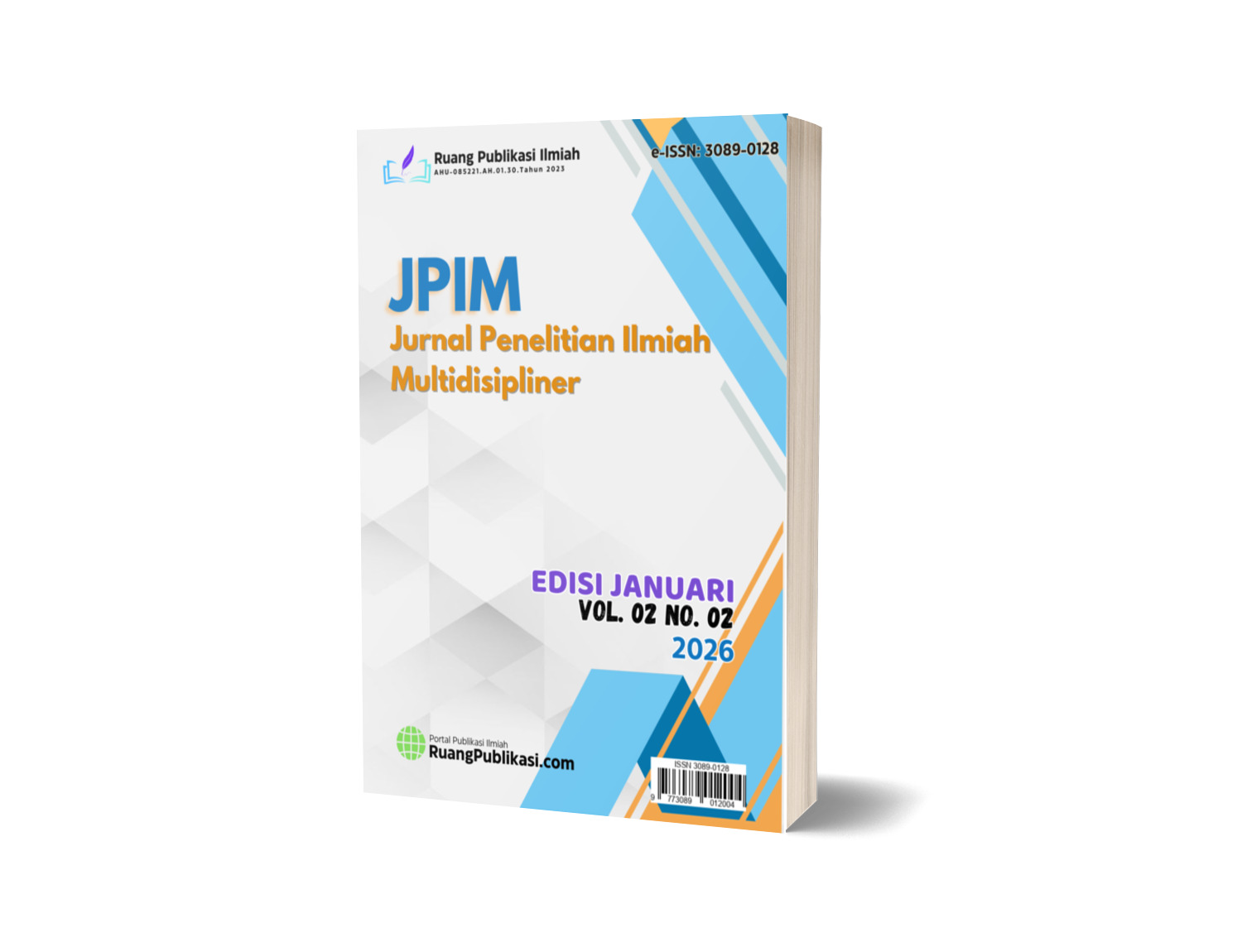Peran AI dalam Mengatasi Kesepian: Tinjauan Literatur
Kata Kunci:
Artificial Intelligence, Dukungan Sosial, Etika, Komunikasi, TeknologiAbstrak
Kesepian merupakan masalah global yang berdampak pada kesehatan fisik dan mental. Penelitian ini bertujuan mengeksplorasi peran kecerdasan buatan (AI) dalam mengurangi kesepian pada berbagai kelompok, khususnya lansia dan mahasiswa. Metode yang digunakan adalah studi pustaka kualitatif terhadap sepuluh jurnal internasional tentang penerapan AI, termasuk chatbot sosial, agen percakapan, dan robot pendamping. Hasil penelitian ini menunjukkan bahwa AI dapat menurunkan skor kesepian melalui tiga mekanisme utama: menyediakan interaksi rutin, memfasilitasi hubungan sosial, dan memberikan dukungan emosional konsisten. Robot sosial seperti PARO, LOVOT, dan ElliQ efektif pada lansia, sedangkan chatbot lebih sesuai bagi pengguna dengan literasi teknologi tinggi. Keberhasilan intervensi dipengaruhi oleh durasi, frekuensi, personalisasi, dan integrasi dukungan manusia. Faktor budaya, etika, dan keamanan data menjadi penentu penerimaan. Temuan ini memberikan dasar strategis bagi pengembangan intervensi AI adaptif dan berbasis bukti untuk meningkatkan kesejahteraan sosial dan emosional.
Unduhan
Referensi
Braun, V., & Clarke, V. (2006). Using thematic analysis in psychology. Qualitative Research in Psychology, 3(2), 77–101. https://doi.org/10.1191/1478088706qp063oa
Broadbent, E., Loveys, K., Ilan, G., Chen, G., Chilukuri, M. M., Boardman, S. G., Doraiswamy, P. M., & Skuler, D. (2024). ElliQ, an AI-Driven Social Robot to Alleviate Loneliness: Progress and Lessons Learned. The Journal of Aging Research & Lifestyle, 13, 22–28. https://doi.org/10.14283/jarlife.2024.2
Chou, Y.-H., Lin, C., Lee, S.-H., Lee, Y.-F., & Cheng, L.-C. (2024). User-Friendly Chatbot to Mitigate the Psychological Stress of Older Adults During the COVID-19 Pandemic: Development and Usability Study. JMIR Formative Research, 8, e49462. https://doi.org/10.2196/49462
De Freitas, J., Uguralp, A. K., Uguralp, Z. O., & Puntoni, S. (2024). AI companions reduce loneliness. arXiv preprint. https://doi.org/10.48550/arXiv.2407.19096
Fang, C. M., Liu, A. R., Danry, V., Lee, E., Chan, S. W. T., Pataranutaporn, P., Maes, P., Phang, J., Lampe, M., Ahmad, L., & Agarwal, S. (2025). How AI and Human Behaviors Shape Psychosocial Effects of Chatbot Use: A Longitudinal Randomized Controlled Study (No. arXiv:2503.17473). arXiv. https://doi.org/10.48550/arXiv.2503.17473
Kim, M., Lee, S., Kim, S., Heo, J., Lee, S., Shin, Y.-B., Cho, C.-H., & Jung, D. (2025). Therapeutic Potential of Social Chatbots in Alleviating Loneliness and Social Anxiety: Quasi-Experimental Mixed Methods Study. Journal of Medical Internet Research, 27, e65589. https://doi.org/10.2196/65589
Kramer, L. L., Van Velsen, L., Clark, J. L., Mulder, B. C., & De Vet, E. (2022). Use and Effect of Embodied Conversational Agents for Improving Eating Behavior and Decreasing Loneliness Among Community-Dwelling Older Adults: Randomized Controlled Trial. JMIR Formative Research, 6(4), e33974. https://doi.org/10.2196/33974
Li, H., Zhang, R., Lee, Y.-C., Kraut, R. E., & Mohr, D. C. (2023). Systematic review and meta-analysis of AI-based conversational agents for promoting mental health and well-being. Npj Digital Medicine, 6(1), 236. https://doi.org/10.1038/s41746-023-00979-5
Maples, B., Cerit, M., Vishwanath, A., & Pea, R. (2024). Loneliness and suicide mitigation for students using GPT3-enabled chatbots. Npj Mental Health Research, 3(1), 4. https://doi.org/10.1038/s44184-023-00047-6
Portacolone, E., & Feddoes, D. E. (2023). Should artificial intelligence play a role in cultivating social connections among older adults? AMA Journal of Ethics, 25(11), 818–824. https://doi.org/10.1001/amajethics.2023.818
Robinson, H., MacDonald, B., Kerse, N., & Broadbent, E. (2013). The Psychosocial Effects of a Companion Robot: A Randomized Controlled Trial. Journal of the American Medical Directors Association, 14(9), 661–667. https://doi.org/10.1016/j.jamda.2013.02.007
Rodríguez-Martínez, A., Amezcua-Aguilar, T., Cortés-Moreno, J., & Jiménez-Delgado, J. J. (2024). Qualitative analysis of conversational chatbots to alleviate loneliness in older adults as a strategy for emotional health. Healthcare, 12(1), 62. https://doi.org/10.3390/healthcare12010062
Sha, S., Loveys, K., Qualter, P., Shi, H., Krpan, D., & Galizzi, M. (2024). Efficacy of relational agents for loneliness across age groups: A systematic review and meta-analysis. BMC Public Health, 24(1), 1802. https://doi.org/10.1186/s12889-024-19153-x
Snyder, H. (2019). Literature review as a research methodology: An overview and guidelines. Journal of Business Research, 104, 333–339. https://doi.org/10.1016/j.jbusres.2019.07.039
Tan, C. K., Lou, V. W. Q., Cheng, C. Y. M., He, P. C., & Khoo, V. E. J. (2024). Improving the Social Well-Being of Single Older Adults Using the LOVOT Social Robot: Qualitative Phenomenological Study. JMIR Human Factors, 11, e56669. https://doi.org/10.2196/56669
Yang, Y., Wang, C., Xiang, X., & An, R. (2025). AI Applications to Reduce Loneliness Among Older Adults: A Systematic Review of Effectiveness and Technologies. Healthcare, 13(5), 446. https://doi.org/10.3390/healthcare13050446








